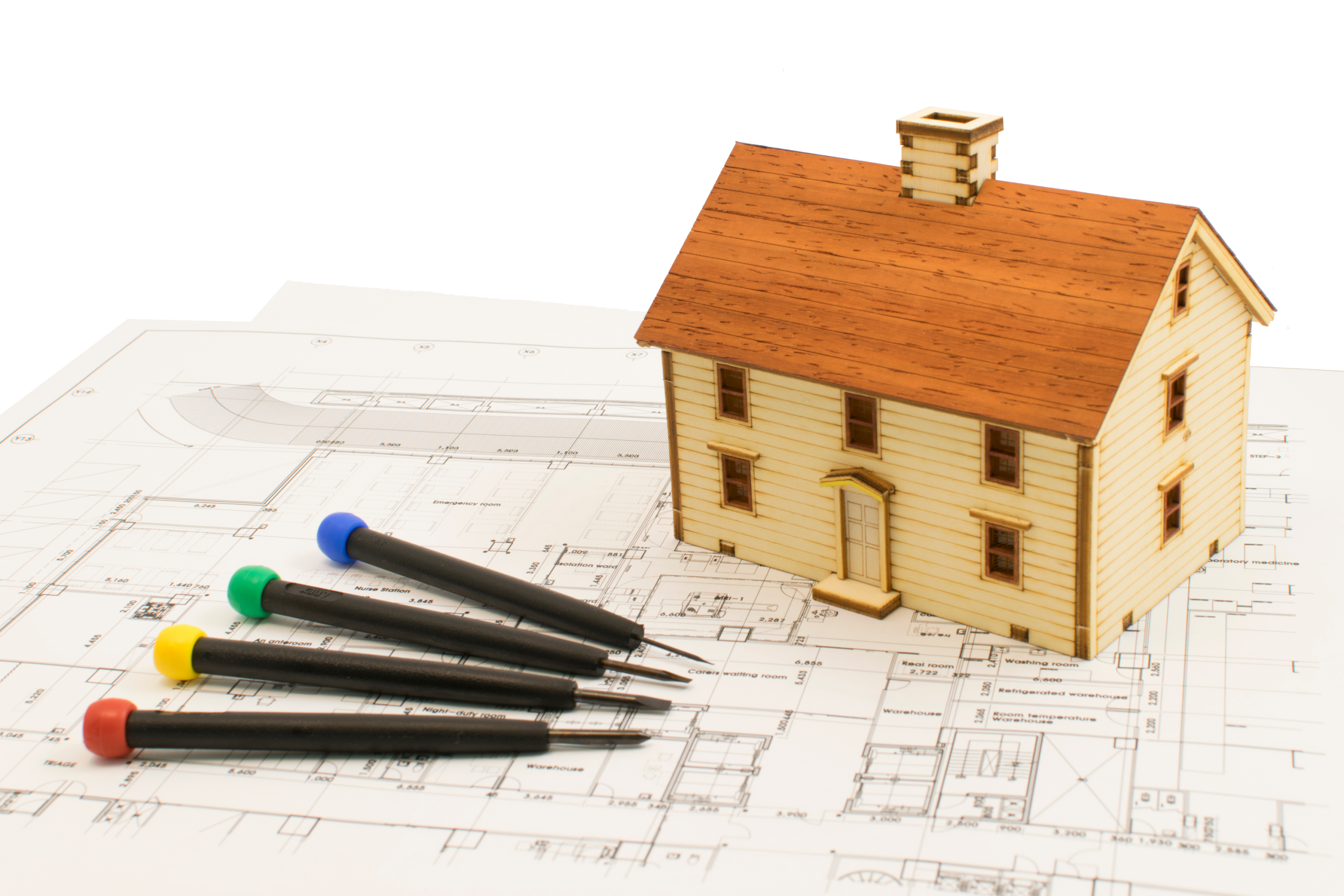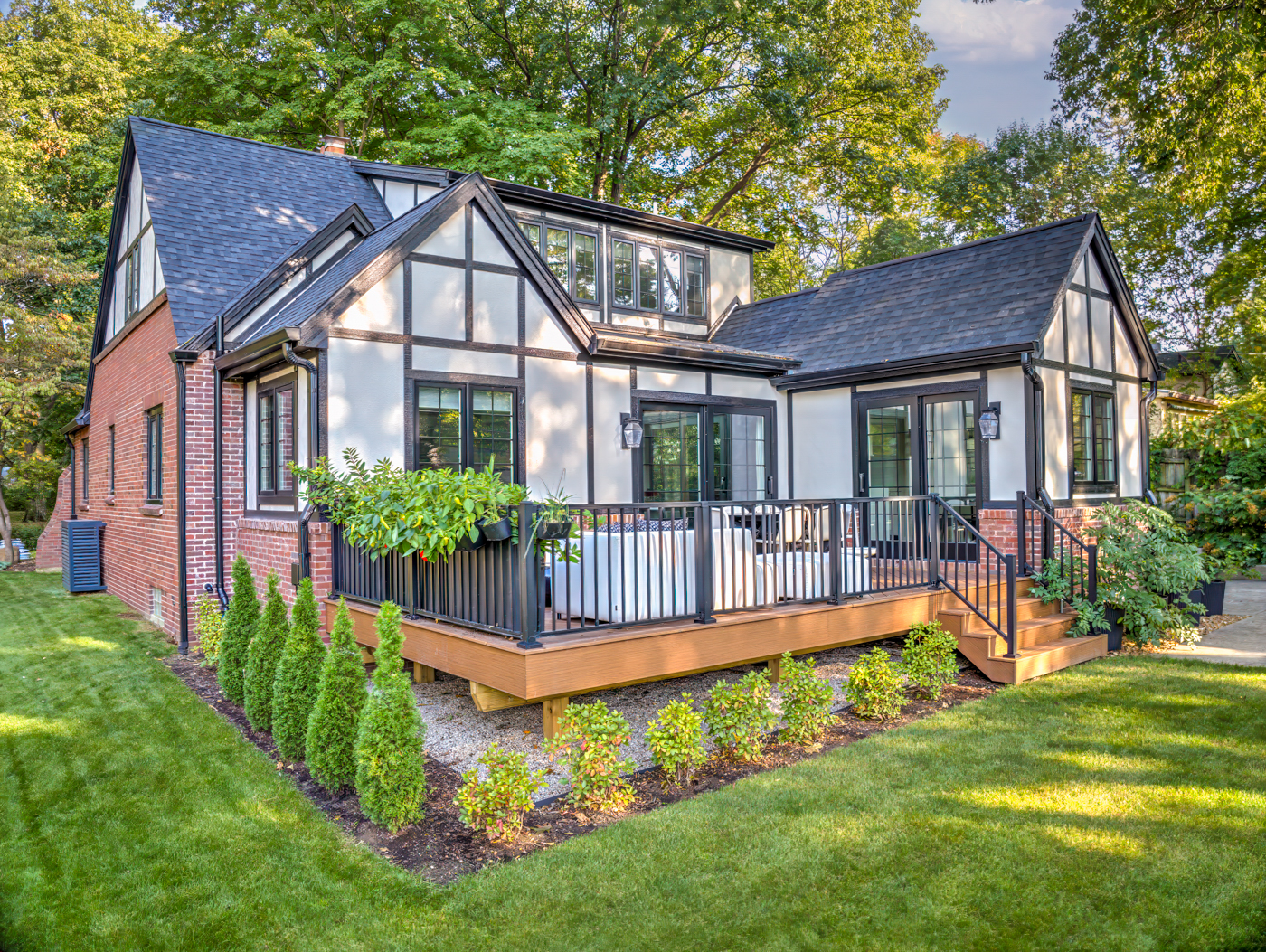Planning to build your dream home? The process requires careful consideration of so many details, but none are more important than finding the right home builder.
Some future homeowners may choose the convenience of a production builder who builds the same design again and again, while others prefer the higher quality, craftsmanship and flexibility that comes from hiring a custom home builder.
A custom home builder takes your design ideas and turns them into reality by working directly with you and the architect who’s designing your new house. The homeowner stays involved from start to finish, giving final say on every unique feature of their one-of-a-kind custom home.
With a “spec” or “tract” home built by a corporate production builder, the design of the home is based on popular floor plans and features that are identical to the other homes in the community. These houses typically cost less to build, but offer the homeowner fewer options when designing their dream home.
Whether you decide to spend less by hiring a big-name contractor or pay more for quality work from a smaller, custom home builder, consider the following tips to find the right general contractor.
1. Research Home Builders Before Buying Land
If you have a dream home with a certain layout or floor plan in mind, the land you purchase to build your house upon needs to complement that vision.
A custom home builder, working alongside an architect and/or real estate agent, can help you find the right property and identify any potential obstacles to your building plans, from easements and zoning restrictions to environmental conditions like drainage.
Once you know the type of house you want to build, make a list of potential builders in your area. At CCG, we want to get involved in the process as early as possible to help guide your custom home endeavors. Based on your individual needs, we can help you find the right quality architect to work with your specific ideas and develop a realistic budget to achieve your goals.
The planning process is so important and can take as much time as it takes to build a custom home in some cases, so working together with a full team from the start will help achieve your vision more quickly and efficiently.
2. Questions to Ask Home Builders and Their Clients
The performance of a home builder matters as much as the price, so it’s important to ask builders the right questions and also talk to a builder’s previous clients.
Besides the cost to build, are there any additional fees related to the home or development? What’s a realistic timeline for building a custom home? Does the builder offer a warranty program? Are there any major development plans for the area in the next five years?
Drive by homes built by the contractor with an eye toward recent and past construction to see how the structures have held up over time. Introduce yourself to the homeowners by telling them you’re interested in hiring the builder who built their house. Ask them if they are happy with their home, if any problems were fixed promptly and properly, and whether they’d buy another home from this builder.
3. Choose High Quality Materials Over Builder Grade
Working with a custom home builder allows you to personalize every detail of the house you are building from the ground up. Starting with the ideal layout, you’ll work with the custom builder, architect and interior designer to select the right building materials, from the foundation to the door knobs.
Builder grade materials are typically pre-built and mass produced, and often of average quality. They may cost less upfront but could mean the homeowner needs to replace them sooner. A custom home builder with years of experience can help you choose higher quality materials that will last.
Also, be aware that any upgrades you request, such as top-of-the-line appliances or in-floor heating for your bathroom, may increase out-of-pocket expenses that weren’t included in your initial budget.
4. Home Builders Need Proper Credentials
In Indiana, a building permit is required to construct a new custom home in most jurisdictions. Your contractor should have a working knowledge of which permits need to be pulled, from which agency they need to be pulled, and the timeline and cost for each.
In many cases, the contractor must first be properly licensed in your local municipality before they can obtain a building permit, which adds an extra layer of consumer protection. Check with your local building or zoning office to determine if your city or county licenses builders. Contractors who hold a valid license typically must carry current bonding and insurance for liability protection.
Also inquire about whether your home builder offers a home warranty on your custom home. Many do for a certain time period, as well as workmanship guarantees for any items that malfunction after installation. Product warranties also may come with roofing, appliances, siding, windows and gutters installed in your home.
5. Establish Good Rapport with Your Custom Home Builder
Building a custom home takes time. You’ll be communicating with your contractor and his crew for several months, working through one detail after another, so it’s best to know from the start whether this person is someone who responds quickly to your questions and works diligently to meet your every need.
At Central Construction Group, we believe in quality, craftsmanship and value engineering. With vast experience building and renovating residential homes in Central Indiana, CCG President Brian Oltmanns has dedicated himself to meeting his clients’ needs, addressing their concerns, and delivering results with high-quality design and building services.
Contact CCG today for a free consultation. We’d love to work with you on turning that dream home into reality.






